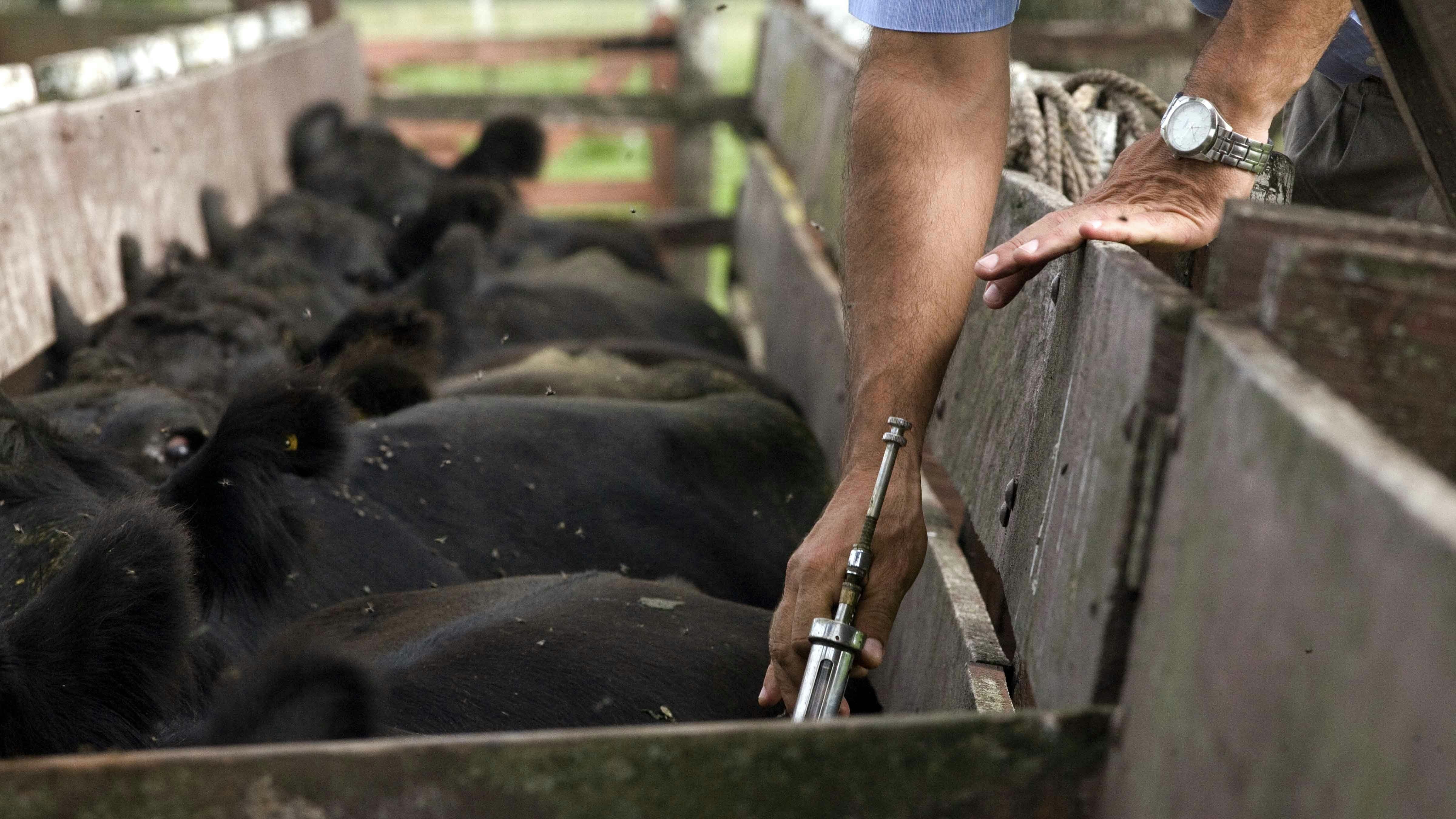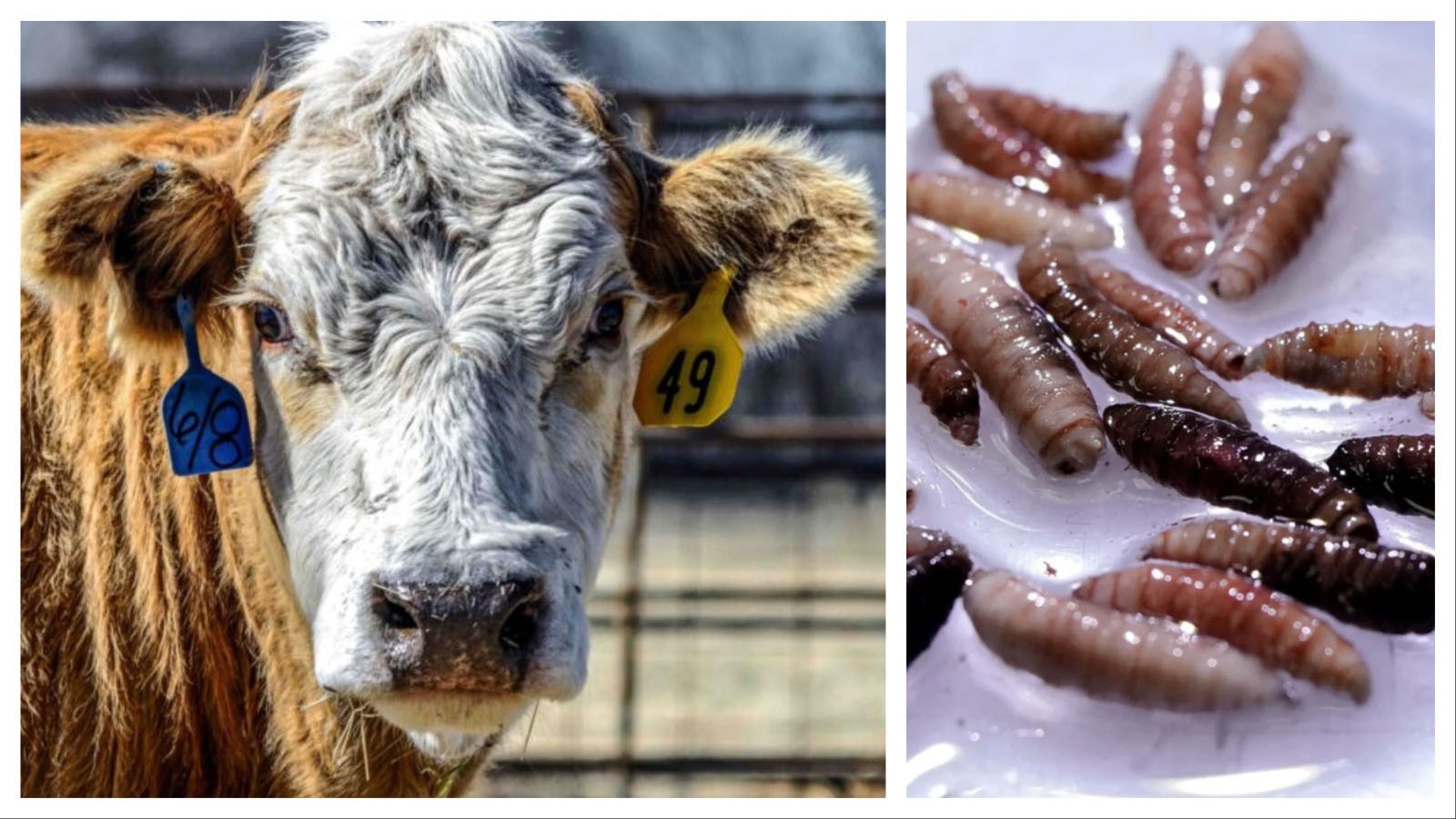Pharmaceutical companies are developing vaccines for livestock that work using the same technology as the COVID-19 vaccine.
Vaccines are a sensitive topic for many, and though none of these livestock vaccines have been approved for use in the U.S., some lawmakers are introducing legislation to label meats that come from animals that have received these vaccines.
A molecular biologist said these laws are unnecessary and misleading, because the vaccines can't get into the food supply.
How They Work
The vaccines work by introducing a piece of messenger RNA (mRNA) that corresponds to a viral protein. The mRNA doesn't enter the nucleus of the cell and cannot alter DNA. Using the mRNA, cells produce the viral protein, and the immune system, as part of its normal response, produces antibodies that fight off future infections.
Currently, the COVID-19 vaccine is the only mRNA approved for use in the U.S. on humans.
Lawmakers in Arizona, Idaho, and Missouri have introduced legislation related to the use of mRNA vaccines in food. The Arizona bill only restricts labeling such food as organic. The Idaho bill amends state law to prohibit the sale of such foods unless conspicuously labeled that the presence of the vaccine is in the food.
The Missouri bill requires a conspicuous "Gene Therapy Product" label.
Dr. Kevin Folta told Cowboy State Daily the proposed "gene therapy" label is inaccurate.
It "means they have no idea what they are trying to regulate," Folta said, because "there is no integration into the DNA. Its a transient set of instructions, like a USB drive. Not a hard drive."
Folta is a professor of the horticultural sciences in the horticultural sciences department of the University of Florida. He has a Ph.D. in molecular biology from the University of Illinois in Chicago. He's been an outspoken advocate against claims that genetically modified organisms are unsafe or that the use of pesticides and herbicides cause negative health impacts.
mRNA-Free Cows
To illustrate the lack of accurate information on these livestock vaccines, Folta recently tweeted a photo of a cow stating it was happily "mRNA free."
Messenger RNA occurs naturally as part of the function of cells in the body.
"mRNA is everywhere, and you cant live without mRNA," Folta said.
Folta explained that the mRNA vaccines could save the cattle industry billions every year. There are a number of viral diseases, including hoof and mouth disease, pseudorabies and avian influenza.
The vaccines, Folta explained, are used to vaccinate the animals against these and other highly contagious diseases.
Some of these diseases are zoonotic, meaning humans can get them from animals, such as rabies, avian influenza, and lyme disease.
The vaccines can also prevent the diseases from jumping from livestock to wildlife, which can be very susceptible to epidemics.
Unfortunate Situation
His efforts to communicate accurate science on agriculture issues have made him the target of organic food advocates.
They accuse him of receiving funding from biotech companies.
The Organic Consumers Association funded a campaign to file multiple Freedom of Information Act requests with the University of Florida to delve into Folta's emails, hoping to prove that he was paid by biotech companies to communicate his science-based perspectives.
Nothing was ever found indicating he had committed any scientific misconduct.
The campaign was such a drain on resources in the department that he was asked to cease his speaking engagements and just teach classes. He said he's been able to come to an understanding with the university.
"It really is an unfortunate situation because we were making some really good progress," Folta said.
Folta said that the vaccines can't get into the food people eat.
"mRNA is an extremely unstable molecule. That's why it works. It's very temporary. So when an animal is slaughtered or when a plant dies, mRNA is the first thing to go," Folta said.
He said it can't be stable at room temperature or when it's not being actively produced.
Besides its instability, it's injected into a localized area on the animal.
Because the vaccines can protect livestock herds from illness, the cattle industry is interested in the mRNA vaccines, Folta said.
When it comes to communicating their safety, Folta said, the benefit to ranchers isn't always convincing because it runs up against a lot of anti-agricultural bias. He tries to stress the benefits to wildlife and humans.
"There's way too much of that [anti-agriculture bias] out there. But the same people who don't like farmers sure do like conservation. So we can protect wild populations and humans," Folta said.
Transparency Labeling
Missouri State Rep. Holly Jones, who sponsored the Missouri bill, told Cowboy State Daily that the legislation doesn't ban the use of the vaccines.
"The public deserves to understand what is in their food supply," Jones said.
She said that mRNA technology is being used without the right amount of studies on safety and efficacy, and she doesn't think the "gene therapy" label would be problematic. Jones said that we already have labels we put on products, such as "grass-fed beef" and "non-GMO."
"There needs to be something specific to gene therapy labeling, especially when it comes to our food supply," Jones said. "We have to be specific enough that people understand what they're putting in their body. I believe consumers deserve to have that information."
Jones said that her bill would support farmers who would become vulnerable to lawsuits without those labels.
"This is actually pro-business," Jones said.
Catastrophic
Brett Moline, director of public and governmental affairs for the Wyoming Farm Bureau Federation, told Cowboy State Daily that the vaccines in use today are vital to the livestock industries.
When the cows are branded, they get a set of shots to protect them from diseases.
"What's keeping the diseases from being on the front page is we don't have outbreaks of diseases, like black leg. You just don't hear about them anymore," Moline said.
The health of the animals is important to producers and their bottom line, Moline said, and so keeping disease under control is part of the business. With profits in the industry on the margin, every animals health counts.
"Happy cows make ranchers happy. To take away that tool could be just catastrophic," Moline said.





